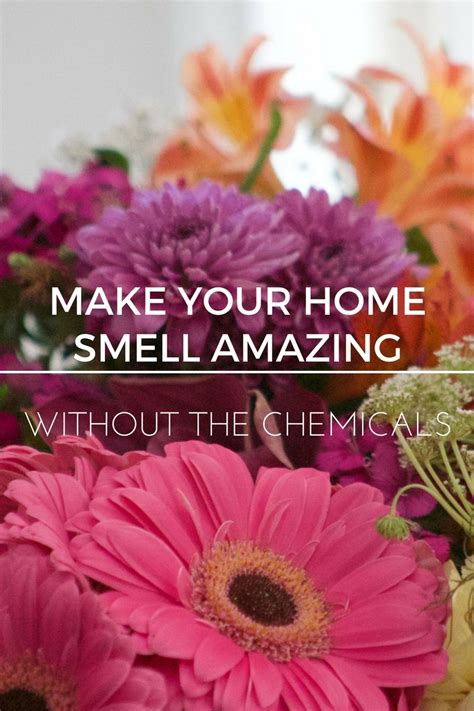Make Your Home Smell Amazing: Extract Flower Scents
Transform your home into a fragrant haven with the enchanting power of flower scents. Forget artificial air fresheners; let's explore the natural and incredibly rewarding process of extracting flower fragrances to create unique and beautiful home scents. This guide will take you through various methods, from simple to more advanced, so you can find the perfect fit for your skill level and available resources.
Why Extract Flower Scents at Home?
Before diving into the techniques, let's understand the allure of homemade flower extracts. Firstly, they offer a purity and complexity that commercially produced scents often lack. Secondly, you have complete control over the ingredients, ensuring you're using only natural, often locally sourced, materials. Finally, the process itself is incredibly therapeutic and rewarding, connecting you directly with the beauty of nature.
What Flowers are Best for Extraction?
The best flowers for extraction are those known for their strong and delightful fragrance. Consider these options:
- Roses: Classic and versatile, rose petals provide a richly romantic scent.
- Lavender: Calming and soothing, lavender is a popular choice for relaxation.
- Jasmine: Intense and intoxicating, jasmine offers a heady, exotic fragrance.
- Lilac: Delicate and sweet, lilac provides a light and airy scent.
- Chamomile: Gentle and herbaceous, chamomile adds a calming touch.
Remember to harvest flowers at their peak fragrance, usually in the morning after the dew has dried.
Methods for Extracting Flower Scents
Several methods exist for extracting flower fragrances, each with its own advantages and complexities.
1. Simple Infused Oil: A Beginner-Friendly Approach
This method is perfect for beginners and requires minimal equipment.
What you'll need:
- Dried or fresh flower petals
- Carrier oil (e.g., almond oil, jojoba oil, olive oil)
- Clean, airtight jar
Instructions:
- Pack the jar tightly with flower petals.
- Pour the carrier oil over the petals, ensuring they are completely submerged.
- Seal the jar tightly and place it in a cool, dark place for 4-6 weeks, shaking occasionally.
- Strain the oil through a cheesecloth or fine-mesh sieve.
- Store the infused oil in a dark glass bottle.
This infused oil can be used directly as a body oil or added to bath salts for a fragrant experience. For home scent, consider using it in a diffuser.
2. Alcohol Extraction: A More Potent Fragrance
Alcohol extraction produces a more potent and longer-lasting fragrance.
What you'll need:
- Fresh flower petals
- High-proof alcohol (e.g., vodka, Everclear)
- Clean, airtight jar
Instructions:
- Pack the jar tightly with flower petals.
- Pour the alcohol over the petals, ensuring they are completely submerged.
- Seal the jar tightly and place it in a cool, dark place for 4-6 weeks, shaking occasionally.
- Strain the alcohol through a cheesecloth or fine-mesh sieve.
- Store the extract in a dark glass bottle.
This extract can be used in perfumes, potpourri, or diluted with water for a room spray.
3. Enfleurage: The Traditional Method (Advanced)
Enfleurage is a traditional method that uses fat to extract the delicate fragrances of flowers. It's a more complex and time-consuming process, but it produces exceptionally high-quality extracts. This method is best researched further through specialized resources before attempting.
How to Use Your Flower Extracts to Scent Your Home
Once you've created your flower extracts, there are several ways to use them to scent your home naturally:
- Room spray: Dilute your alcohol extract with water and transfer to a spray bottle.
- Diffuser: Add a few drops of your infused oil or alcohol extract to a diffuser.
- Potpourri: Combine dried flower petals with your extract for a long-lasting fragrance.
- Candles: Incorporate your infused oil into homemade candles (use caution and follow candle-making safety guidelines).
Troubleshooting and Frequently Asked Questions
What if my extract doesn't smell strong enough?
Use more flowers or a higher concentration of alcohol/oil. Ensure the flowers were harvested at their peak fragrance.
How long do flower extracts last?
Infused oils generally last for 6-12 months, while alcohol extracts can last for several years if stored properly in a cool, dark place.
Can I use essential oils instead of extracting flower scents?
Yes, essential oils are a convenient alternative, although they often lack the nuanced fragrance profile of a homemade extract.
Which method is best for beginners?
The simple infused oil method is the easiest and most forgiving for beginners.
By following these techniques and embracing the patience required, you can transform your home into a personalized fragrant sanctuary using the exquisite scents of flowers. Remember that the process is as rewarding as the outcome, so enjoy the journey!

